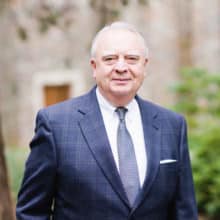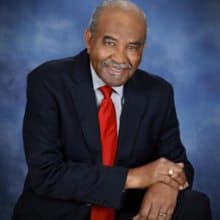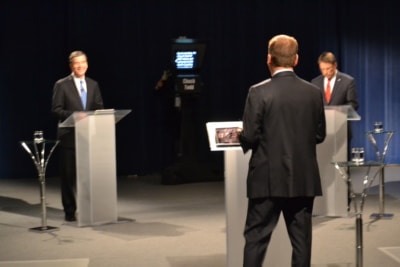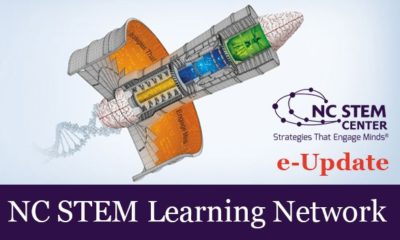Next week, the Public School Forum will release the final report from its 16th biennial “study group.” The report, entitled, Expanding Educational Opportunity in North Carolina: Action Plan and Recommendations, is a call to action for all of those who care about public education in our great state.
Forum study groups are collective efforts by leaders from education, business, government, and academia to distill knowledge on major, timely education issues. Past Forum study groups have examined issues including teacher recruitment and retention, accountability and assessments, school finance, international competitiveness, and expanded learning and afterschool opportunities. This year’s effort has focused on educational opportunity.
Ten years ago, another Forum study group (Study Group XI) offered a response to the state Supreme Court’s seminal ruling in Leandro v. State, which defined the state’s constitutional obligation to provide every child with an “opportunity to obtain a sound basic education.” What we understood then, and have seen reinforced consistently since, is that delivering on the constitution’s promise will take the hard work and dedication of countless educators, and all of the ingenuity and resources that our state can muster in support of their work.
What would it look like if we did this? What would it truly take to give every child in North Carolina the opportunity to receive a sound basic education?
To answer this question, participants in our study group looked at the major factors spotlighted in Leandro: teachers, school leaders, and resources. But we decided that to truly get a handle on the answer to the question, we needed to go deeper.
Our approach to deepen our inquiry began, as every discussion of education policy should, with students. We thought about the crises that students confront outside of school and carry with them into our classrooms. Some are deeply personal—tragic events or recurring traumas, such as the death of a loved one; an abusive parent; or hunger or homelessness. Others are societal, including racial inequities perpetuated by policies, practices, and other systemic norms. Still others relate to our education system itself. While some students are well-served by schools that achieve herculean results amidst the most challenging circumstances, too many languish year after year in struggling schools.
Considering these factors together—the personal, the cultural, and the systemic—led us to conceive of an archetypical disadvantaged student named “Antonio,” described in detail in the report. Antonio is a composite of many students we have taught over the years, a student of color who has experienced multiple traumas and attends a low-performing school. As we delved into research and weighed the merits of various policy proposals and potential new programs, we constantly called ourselves back to Antonio, to ask if what we were evaluating would help give him the opportunity to receive a sound basic education.
The primary driver of our work in Study Group XVI has been a sense that if we design schools and education policies and programs for Antonio and others like him, all students will be well served. Creating trauma-sensitive schools and addressing the needs of those students most impacted by abuse or household dysfunction will make schools safer and more learner-centric environments, benefitting everyone. Increasing racial equity doesn’t just improve the educational experiences of minority students. It helps all students and educators work together more compassionately, and it moves everyone in the school and the community toward our strongest ideals of fairness and justice. And finally, turning around struggling schools holds promise not just for students in those schools, but also for students underserved in higher-performing schools.
To focus our efforts, we divided the Study Group into three committees, each examining one of the three “levers” we have identified to expand educational opportunity.
Committee on Trauma & Learning: Research has documented the high prevalence of traumatic experiences in childhood, particularly among students living in poverty. This Committee studied the prevalence and impact of these experiences on student learning, and learned from state and national experts about strategies for addressing these impacts within educational settings.
Committee on Racial Equity. With North Carolina’s increasingly diverse student population, intentionally and systemically promoting racial equity will be essential if the state hopes to dismantle historical racial and structural inequities to better serve its most vulnerable students. This Committee subdivided its work into seven domains: resegregation; discipline disparities; the opportunity gap; overrepresentation of students of color in special education; access to rigorous courses and programs; diversity in teaching; and culturally responsive pedagogy.
Committee on Supporting Low-Performing Schools. The issues discussed above affect students in all schools, but concentrated disadvantage has led to the categorization of certain schools as “low-performing.” The work of this Committee focused on interventions that show particular promise to support the rapid educational improvement of high numbers of students by targeting supports to these schools.
Each committee met several times over a five-month period, from December 2015 through April 2016, reviewing the literature on their topic and meeting with subject-matter experts and practitioners to better understand the current state of the field on the topic and to generate practical, actionable recommendations. In the coming week, articles by the committee co-chairs will spotlight the work of each committee, beginning with the Committee on Trauma & Learning on Monday, followed by the Committee on Racial Equity on Tuesday, and the Committee on Supporting Low-Performing Schools on Wednesday.
After these forays into each committee’s work, the Forum will release the Study Group’s final report on Thursday, October 20, bringing together the three committees’ work in an overall “Action Plan and Recommendations” for expanding educational opportunity in the state. We invite you to join us in exploring this topic over the next week, and in working to make the recommendations a reality in the months ahead.
Only through a true collective effort by all of those who care about ensuring equitable access to educational opportunity can we give every North Carolina child the opportunity to receive a sound basic education.






